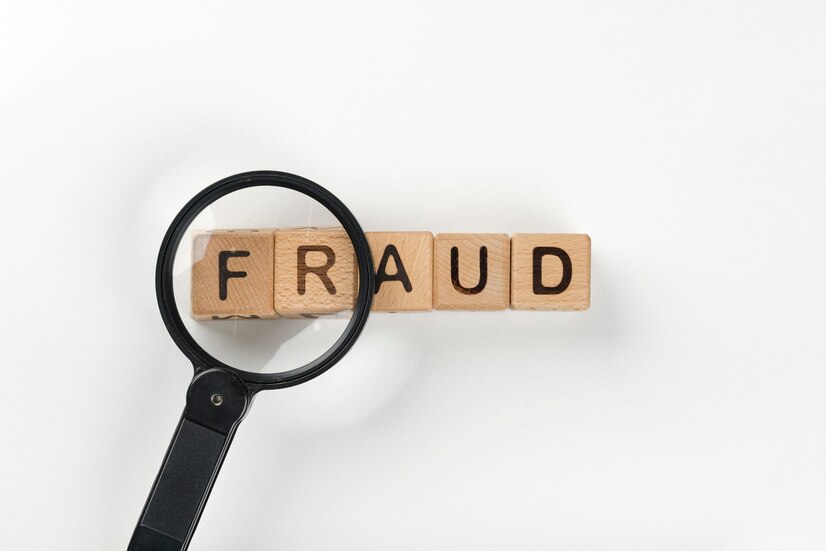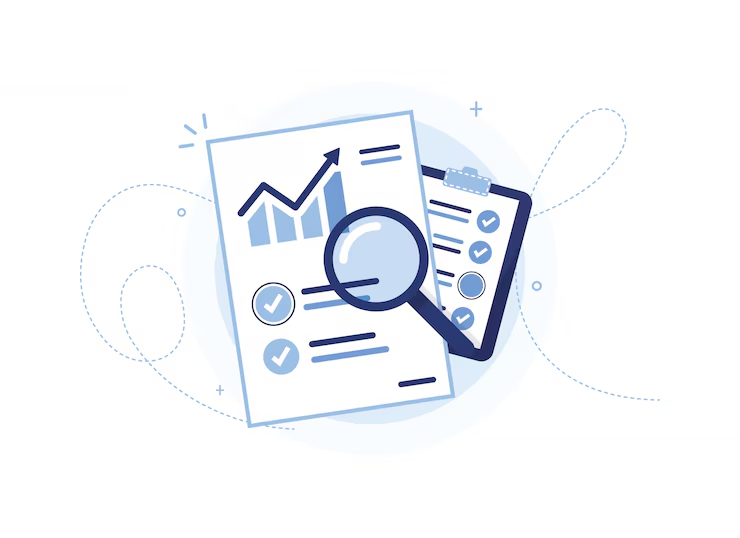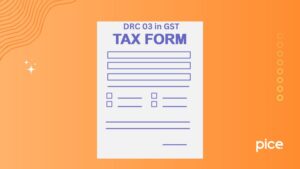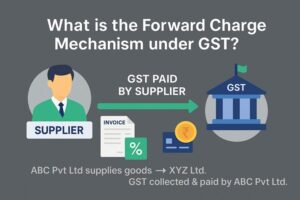Blocked Credit Under GST
- 19 Aug 24
- 12 mins

Blocked Credit Under GST
Key Takeaway
- Section 17(5) of the CGST Act outlines specific scenarios where Input Tax Credit (ITC) is not available, primarily to ensure it's only used for business-related expenses.
- ITC cannot be claimed for personal use items, free samples, or goods lost, stolen, or destroyed, reinforcing the business-only utility of such credits.
- Vehicles, food, and catering services have restricted ITC unless they directly contribute to taxable business outputs or are mandated by law.
- Fraudulent claims of ITC, including those based on willful misstatement or suppression of facts, can lead to severe penalties, including reversal of credit and legal action.
- Regular updates and accurate reporting in GSTR-3B are crucial for compliance, as they help manage ITC claims and reversals effectively.
What is Section 17(5) of the CGST Act?
Section 17(5) of the Central Goods and Services Tax (CGST) Act is a crucial provision that details the scenarios under which the Input Tax Credit (ITC) cannot be claimed, effectively making certain credits "blocked." This provision aims to restrict the utilization of ITC to ensure that it is only used for business purposes and not for personal or non-business activities
In which case input tax credit is not available?
Input Tax Credit (ITC) under the GST framework is a crucial mechanism designed to avoid the cascading effect of taxes. However, there are specific cases outlined in Section 17(5) of the Central Goods and Services Tax (CGST) Act where ITC is not available. These restrictions help ensure that ITC is only utilized for business-related expenditures and not for personal or non-business activities. Here are the key scenarios where input tax credit is restricted or not available:
Clause (b) - Vehicle Renting, Food, Catering
- Vehicle Renting: ITC is not available for services of renting or hiring motor vehicles unless these vehicles are used for further taxable supplies of the same category (such as transport of goods or passengers), or the taxpayer is in the business of renting such vehicles, or the motor vehicles are used for training on driving, flying, navigating such vehicles, or conveyances.
- Food and Beverages, Catering Services: Input tax credits for costs incurred on food and beverages, outdoor catering, and other similar services are generally not allowed unless they are used for making an outward taxable supply of the same category of goods or services or as an element of a taxable composite or mixed supply. This also applies if such services are mandated by law for the employer to provide to their employees.
Clause (c) and (d) - Building Construction
- Clause c (Works Contract Services) : ITC on works contract services is not available when these are procured for the construction of an immovable property (other than plant or machinery), except when it is an input service for further supply of works contract service. Essentially, if the construction service is used for the creation of a business capital asset (other than plant and machinery), the ITC cannot be claimed.

- Clause d (Construction of Immovable Property): Similar to works contract services, ITC is not available on goods or services or both received by a taxable person for the construction of immovable property on his own account. This includes goods and services used in the course of business. The rationale here is that expenses incurred in constructing immovable property are considered capital expenditures, and thus, ITC is blocked to prevent its use in situations where the end product is a capital asset that is not intended for resale.
💡If you want to pay your GST with Credit Card, then download Pice Business Payment App. Pice is the one stop app for all paying all your business expenses.
Clause (e) and (f) - Non-resident and Composition
Clause e (Non-resident): This clause states that input tax credit is not available on goods or services or both received by a non-resident taxable person, except for any of the goods or services or both used for the furtherance of business. Non-resident taxpayers often do not have a permanent base in India, and this stipulation ensures that ITC is only claimed for business activities conducted within India.
Clause f (Composition): Under this clause, ITC is not available to taxpayers who have opted for the composition scheme. The composition scheme is a simplified tax structure available to small taxpayers allowing them to pay GST at a fixed rate of turnover and relieves them of many of the detailed compliance requirements. Since they pay a concessional rate and are relieved from detailed compliance, they cannot claim ITC on their inputs.
Clause (g) - Personal Use
Clause (g): This clause specifically restricts the input tax credit on goods or services or both used for personal consumption. This ensures that the benefits of ITC are strictly confined to business expenditures. Any goods or services that are used for personal needs, irrespective of whether they are purchased through the business, do not qualify for ITC. This includes items taken from the business for personal use, which must be clearly documented and excluded from ITC claims.
Clause (h) - Free Sample and Lost
Clause (h) specifies that input tax credit cannot be claimed on goods that are:
- Lost: Goods that are misplaced or unaccounted for and cannot be traced in business operations.
- Stolen: Goods stolen from the business are not eligible for ITC since they do not contribute to business output or sales.
- Destroyed: Goods destroyed due to accidents, natural calamities, or other reasons will not qualify for ITC since they never enter the commercial stream.
- Written off: Goods that a business decides to write off from their accounts due to obsolescence or damage also are not eligible for ITC.
- Disposed of by way of gift or free samples: When goods are given away as gifts or used as free samples for promotion or other purposes, ITC cannot be claimed on such supplies, since these do not generate taxable sales or direct business income.
These restrictions help ensure that ITC is only claimed on goods and services that are used in the course or furtherance of the business and have a direct impact on taxable transactions.
Clause (i) - Fraudulent ITC Claims
Clause (i) deals with instances of fraudulent ITC claims, where the input tax credit is availed based on:
- False documents: Using forged or fabricated invoices or documentation to claim ITC.
- Wilful misstatement: Deliberate incorrect information provided to the tax authorities to claim higher ITC than eligible.
- Suppression of facts: Omitting information intentionally to evade tax or claim undue ITC.

What is the Reversal Under Section 17(5)?
The reversal under Section 17(5) of the CGST Act refers to the process of negating or adjusting input tax credit (ITC) that has been claimed in situations where it should not have been. This typically occurs in the following circumstances:
- Change in Use: If goods or services initially used for business purposes are later used for non-eligible purposes (as outlined in Section 17(5)), such as personal use or in making exempt supplies, the ITC availed on such goods and services needs to be reversed.
- Blocked Credits: If ITC has been mistakenly claimed on expenses that are explicitly blocked under Section 17(5), such as goods lost, stolen, used for personal consumption, or given as free samples, then such credits need to be reversed.
- Non-payment to Supplier: Under GST law, if the payment to the supplier is not made within 180 days from the date of invoice, the ITC availed on that purchase must be reversed. However, the credit can be reclaimed upon payment to the supplier.
The reversal is calculated for the period in which the usage changed or the contravention was identified, and the taxpayer is required to make this adjustment in their GST returns.
What Happens if You Contravene ITC u/s 17(5) of CGST Act?
Contravening the rules of Section 17(5) regarding ITC can lead to several adverse consequences, including:
- Reversal of Credit: Any ITC that has been incorrectly claimed must be reversed. This means the taxpayer will have to pay back the amount of ITC with applicable interest.
- Interest: Interest is levied on the amount of ITC that has to be reversed. This interest is calculated from the date the ITC was availed until the date it is reversed.
- Penalties: If the contravention is due to negligence, fraud, or wilful misstatement, the taxpayer could face substantial penalties. Under GST law, penalties can range from 100% of the tax evaded or ITC wrongly availed or utilised, to even higher in cases of fraud.
- Legal Actions: In severe cases, especially those involving fraudulent claims or suppression of facts to claim ITC, legal proceedings can be initiated against the taxpayer, which might include fines or imprisonment depending on the severity of the violation.
- Audit and Scrutiny: A taxpayer who contravenes the provisions of Section 17(5) may also come under closer scrutiny and audits by tax authorities, leading to rigorous examination of past and present compliance.
Where to Get the List of Ineligible ITC u/s 17(5) of CGST Act?
To find the list of ineligible input Tax Credit (ITC) under Section 17(5) of the CGST Act, you can refer to several resources:
- GST Law: The most authoritative source is the CGST Act itself, particularly Section 17(5), which explicitly lists the scenarios where ITC is not available. The text of the CGST Act can be found on the official website of the Central Board of Indirect Taxes and Customs (CBIC) or other government GST portals.
- GST Portals: The official GST portal provides comprehensive information, including circulars, notifications, and updates related to GST laws and ITC restrictions.
- GST Handbooks and Guides: These are published by tax advisory firms, law firms, and educational institutions. They often provide detailed interpretations and examples of various GST provisions, including ITC restrictions.
- Tax Consultants and Advisors: For businesses that require clarity on specific cases or complex scenarios, consulting with a GST expert or tax consultant is advisable. They can provide tailored advice based on the latest regulations and rulings.
Reporting of Section 17(5) of CGST Act in GSTR-3B
GSTR-3B is a monthly summary return that every GST registered person must file. Here’s how to report ITC as per Section 17(5) in GSTR-3B:

- ITC Reversals: Any ITC that needs to be reversed under Section 17(5) must be reported in Table 4(B) of the GSTR-3B form. This table is specifically for adjustments and reversals of ITC. When filling out this section, you will detail the ITC that is being reversed due to reasons specified under Section 17(5).
- Calculation of Eligible ITC: Initially, in Table 4(A) of GSTR-3B, you report the total ITC availed on inputs, input services, and capital goods. After adjustments for any ineligible ITC as per Section 17(5), the net eligible ITC is computed.
- Disclose Details: It's important to maintain detailed records of the transactions and calculations that lead to ITC reversals or adjustments. This information should be readily available if required by GST auditors or for any compliance verification process by the tax authorities.
- Regular Updates: Since GST laws and guidelines can be updated frequently, keeping abreast of any changes to reporting requirements is crucial. This includes staying informed through official GST notifications, circulars, or updates on the GST portal.
 By
By 

















